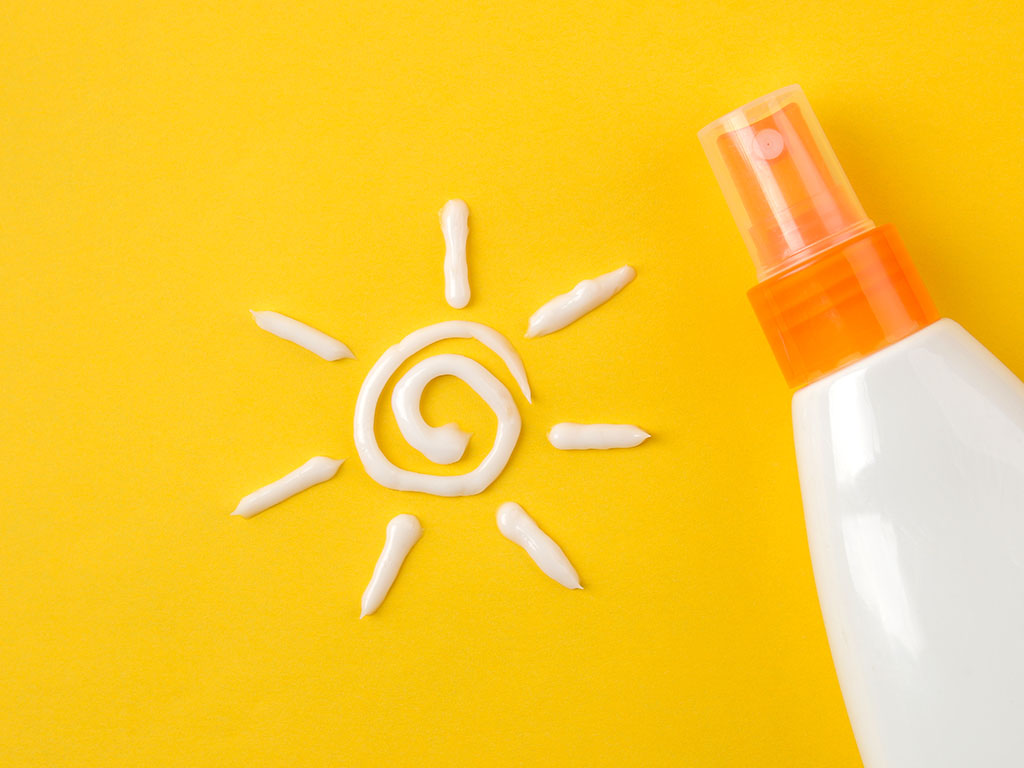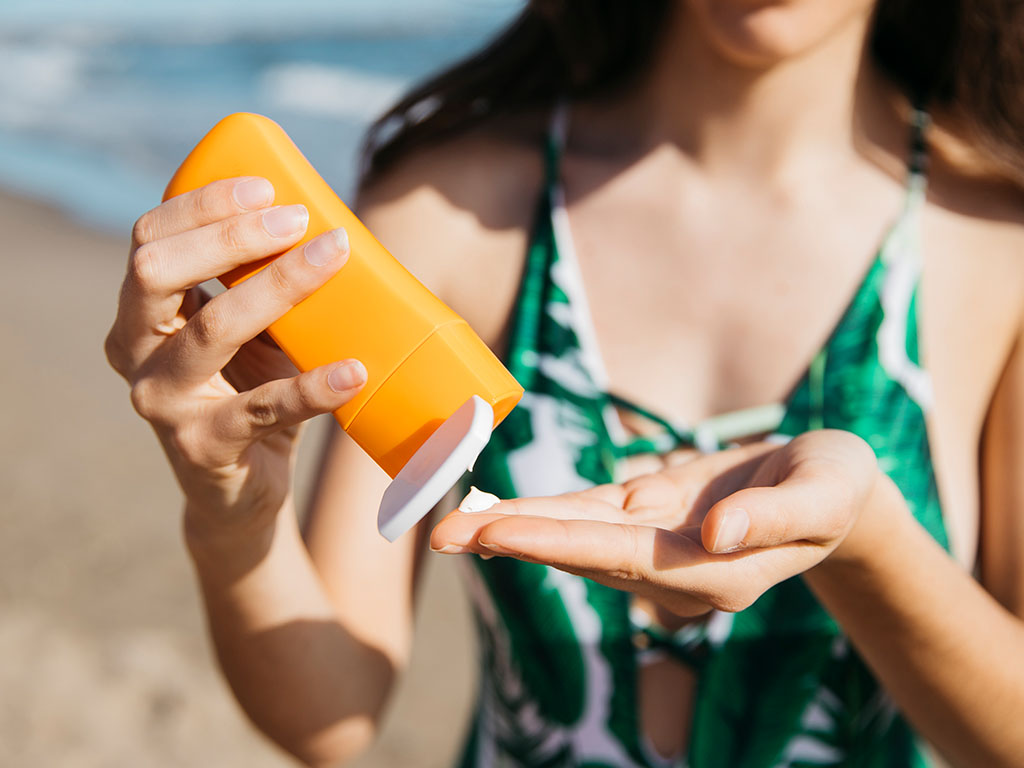 The summer sun brings out freckles on our noses, tans our foreheads and other parts of the body, and brings us joy with its warm presence. Many of us associate summer with relaxation, sunny days, and long evenings. However, for our skin, summer can be a real challenge. During the warmer months, the skin is exposed to more sunlight, higher temperatures, and environmental changes, which can negatively affect its health. Let’s take a look at how to take care of your skin (not only) in summer.
The summer sun brings out freckles on our noses, tans our foreheads and other parts of the body, and brings us joy with its warm presence. Many of us associate summer with relaxation, sunny days, and long evenings. However, for our skin, summer can be a real challenge. During the warmer months, the skin is exposed to more sunlight, higher temperatures, and environmental changes, which can negatively affect its health. Let’s take a look at how to take care of your skin (not only) in summer.
Why Is Summer So Specific for Our Skin?
Summer brings many pleasant experiences, but also challenges for our skin. The sunny days we missed so much during winter are finally here for us to enjoy to the fullest. However, it’s this very sunlight that can cause numerous problems during the summer months—such as sunburn, premature skin aging, or even an increased risk of skin cancer. Ultraviolet (UV) radiation, which is part of sunlight, is divided into two main types: UVA and UVB.
- UVA radiation penetrates deeper into the skin and is responsible for premature aging (wrinkles, loss of elasticity) and the development of pigmentation spots.
- UVB radiation causes sunburn, which can damage the outer layer of the skin, potentially leading to inflammation and DNA cell damage.
Our skin has a natural defense mechanism, but during summer this mechanism is under significant pressure—especially if we are exposed to the sun for extended periods without protection.

How Do Sunscreens Work?
Sunscreens are a key tool in protecting the skin from sunlight. Their effectiveness is based on protective agents that block or absorb UV radiation. Today, there are various types of sunscreens that differ in their level of protection and how they work.
SPF (Sun Protection Factor) is a number that indicates the level of protection against UVB radiation. For example, SPF 30 means your skin is 30 times more protected from sunburn than without any protection. So, theoretically, if you apply sunscreen with SPF 30, you can stay in the sun 30 times longer without burning than if you didn’t use any protection. Of course, this calculation is only theoretical because effectiveness also depends on other factors like sweating, water exposure, and the intensity of sunlight.
SPF (Sun Protection Factor) is an indicator of protection against UVB radiation, which causes sunburn. The higher the SPF, the greater the protection against UVB. However, SPF does not provide complete protection against all types of skin damage. Therefore, it is important to also consider protection against UVA radiation when choosing a sunscreen.
There are three main types of sunscreens:
- Chemical filters absorb UV radiation and convert it into heat, which is then released from the skin.
- Physical filters (mineral filters) such as zinc oxide and titanium dioxide create a protective layer on the skin that reflects sunlight.
- Hybrid filters combine both methods of protection and offer balanced coverage.
It is important to choose a sunscreen with the right SPF depending on your skin type, the length of time you’ll be in the sun, and the intensity of the sunlight. For most people, using SPF 30 to 50 is recommended.
Apply sunscreen in a sufficient amount and reapply regularly. Most people apply too thin a layer, which reduces the effectiveness of protection. When sunbathing, remember to reapply the sunscreen every two hours, even if you are using a water-resistant product.
How to care for your skin in summer?
Summer skincare is specific and should include sun protection as well as adequate hydration and skin regeneration after sun exposure.
1. Sun Protection
As mentioned earlier, it is important to regularly use sunscreens with an appropriate SPF. Don’t forget to protect sensitive areas of the body such as the lips, ears, and the skin around the eyes. For these areas, there are special SPF balms available on the market.
2. Skin Hydration
High temperatures and sun exposure can dry out your skin. Therefore, it is essential to ensure adequate hydration. Use quality hand creams, body lotions, or oils containing moisturizing ingredients such as aloe vera, glycerin, or hyaluronic acid. Sunscreen is just as important as after-sun care, which soothes and treats your skin after a long day in the sun. Choose products that help restore your skin’s natural balance.
3. Exfoliation
Regular exfoliation helps remove dead skin cells and improves circulation. This is especially important in summer to prevent clogged pores, breakouts, and inflammation. Use gentle exfoliants to avoid damaging your skin. If you have very sensitive skin, avoid exfoliation and consider alternative skincare methods.
4. Recovery After Sun Exposure
After a day spent in the sun, it is essential to soothe and regenerate your skin. After sun exposure, it’s ideal to use products containing aloe vera, panthenol, or vitamin E, which have calming effects and support skin healing. When going on vacation, also pack a burn relief cream or a soothing cream or spray to help relieve any burning sensations.
5. Hydration
This isn’t just important in summer. Water is our best friend in fighting fatigue and the unpleasant effects of dehydration. Dry or flaky skin can be a result of not drinking enough fluids. Dehydrated skin is more prone to irritation and premature aging.
6. Don’t forget that...
In summer, besides sunlight, there are other factors affecting our skin’s health. For example:
- Moisture and sweating can clog pores, leading to acne and inflammation. Therefore, make sure to cleanse your skin at least once a day to remove impurities.
- Chlorine and salt in pools and the sea can dry out your skin. After swimming, enjoy a fragrant bubble bath, rinse off with clean water, and apply a moisturizing cream to your skin
Summer can be challenging for your skin, but with the right care and protection, you can avoid many problems. Regular application of sunscreen, skin hydration, and regeneration after sun exposure are the foundations of beautiful and healthy skin all year round. Don’t forget to take care of your skin so you can enjoy summer without worrying about its health!

